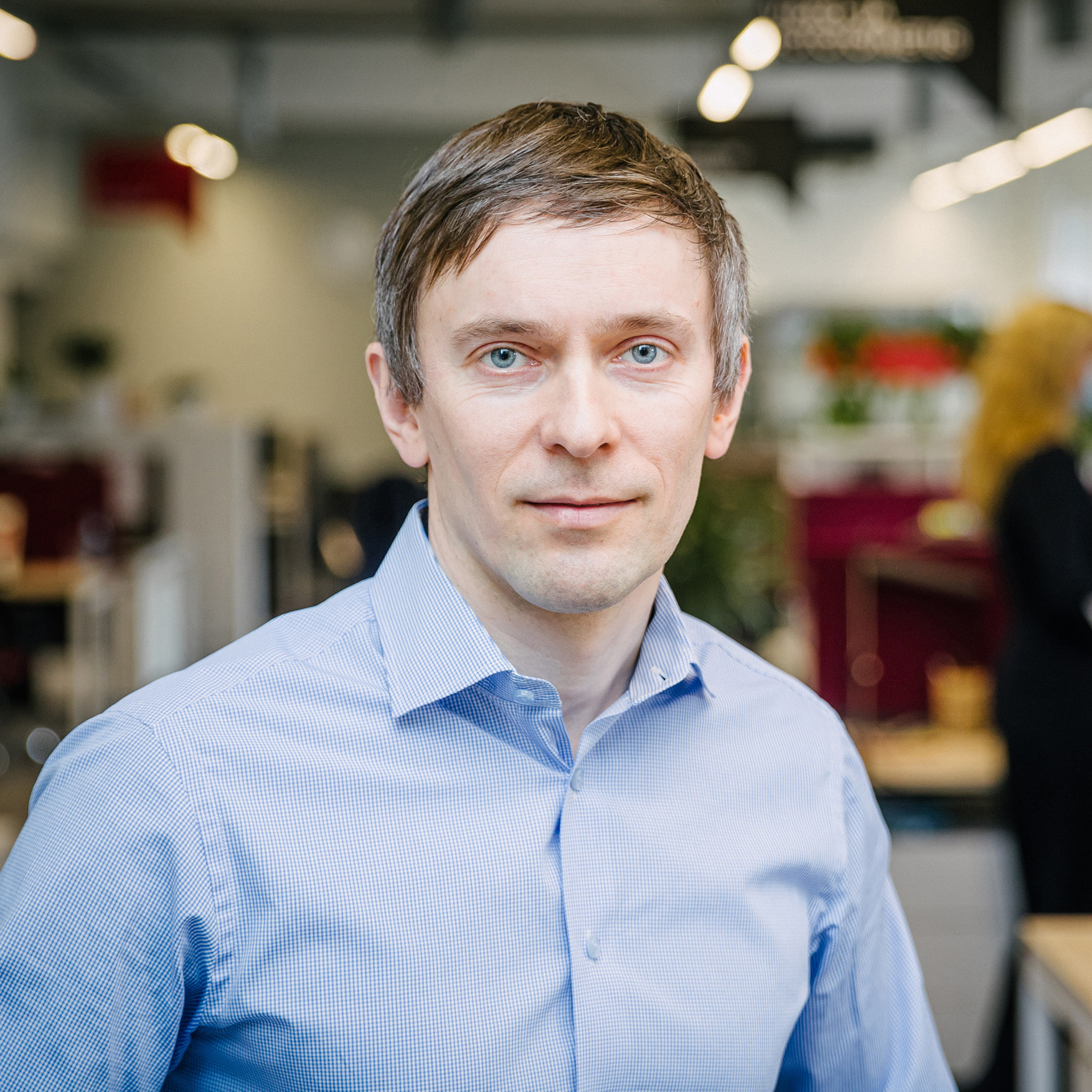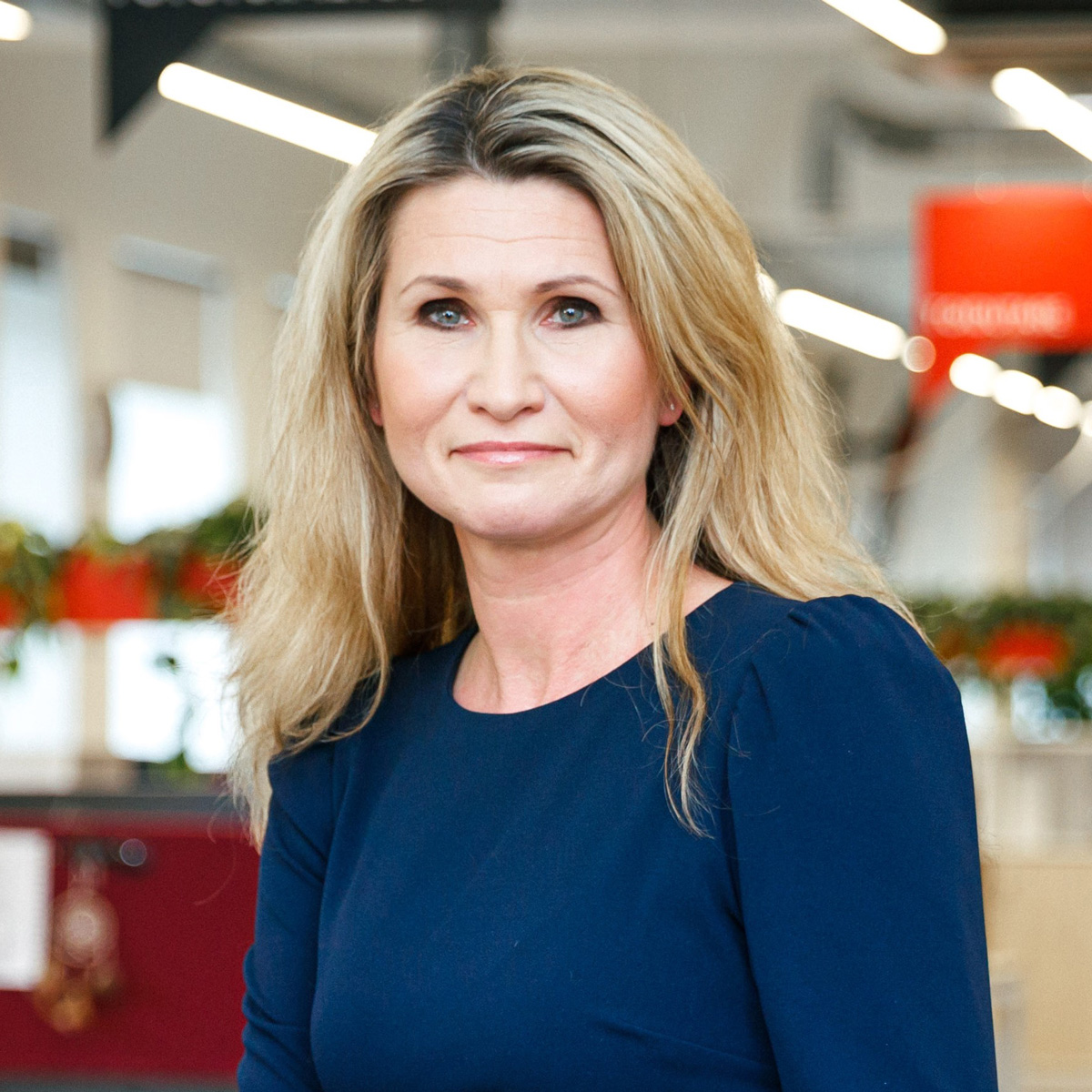
Management Commentary

The year 2020 was a breakthrough year for the Group’s media publications in terms of the growth of digital subscriptions. The key reason for the growth in digital subscriptions was the change in the attitudes and habits of people: they are more willing to pay for high-quality digital content in their own language. The change was supported by the general background – objective journalism is more and more appreciated in a society dominated by global fragmented information. A major setback hit the Group in mid-March when the Baltic States imposed a state of emergency to curb the spread of the coronavirus. This in turn led to sudden changes in the economic environment. The most susceptible companies to the effects of the restrictions were the Group’s media companies, especially outdoor media and the ticket sales platform in Latvia. As we look back on the past year we can state that owing to our quick reaction, clear and open communication, keeping of promises, correct management decisions, and the loyalty and contribution of all Group employees, Ekspress Grupp was able to cope with the corona crisis and continue to provide our readers with what they needed the most - fast, relevant and reliable information in the most appropriate channels.
Chairman of the Management Board, Chief Executive Officer of the Group


In the digital business, everyone makes fast progress. If someone starts to use anything new, half a year later, everyone will be using it. Although it could be assumed that some stability will arrive soon because all market participants have already come out with their key products, in reality this is not yet the case. On the contrary, the development of the digital service area is picking up speed throughout the world. There are many global companies with huge development capacities and they are able to progress very quickly. In certain specialised areas, one thousand people may programme the same piece. For example, in our market in the context of recruitment of specialists the fact how to keep pace with such fast developments is already a challenge.
Member of the Management Board, Development Director of Ekspress Grupp


We live in a period of extraordinary changes and challenges. The unexpected and extraordinary events of 2020 presented challenges to the normal activities of people and businesses around the world. During the pandemic and the related economic disequilibrium and social unrest, AS Ekspress Grupp has managed to maintain the stability in its companies, keep sufficient liquidity and partly increase its sales revenue despite the impact of the pandemic.
Member of the Management Board, Chief Financial Officer of the Group
















Statement of the chairman of the management board
The mission of AS Ekspress Grupp is to serve democracy. We wish to offer reliable, independent and timely information to our readers that would help Estonia, Latvia and Lithuania to become better- informed, open and digitally advanced societies. Our mission is especially important during the coronavirus pandemic. At the time when the number of users in all of our news portals reached an unprecedented level, we needed to quickly introduce remote working at our editorial staffs due to the state of emergency. Taking account of the interests of our readers turned out to be a challenge for all of us but the work of the periodicals never stopped for a second. I believe that solving such situations is one of the key reasons for a journalist to choose his or her profession. We continued to provide comprehensive services to our readers and the best possible services under the circumstances which meant major adjustment to new habits, practices and work procedures.
While the media sector was able to enjoy attention and plenty of work, the digital outdoor companies of Ekspress Grupp and the ticket sales platform in Latvia suffered the most during the pandemic. The main reason for setbacks was national restrictions that almost halted the activities of these businesses.
In summary, the year 2020 was a success for the Group: despite the state of emergency and the economic instability due to the coronavirus, the Group was able to strengthen its market position and significantly improve profitability. Sales revenue over the 12-month period decreased by 6% to 63.2 million euros and net profit increased by 80% to 2.5 million euros. The Group's digital revenue made up 49% of total and 71% of media segment revenue. Thus, it can be said that the year of the pandemic accelerated the Group’s digitalisation process to a significant degree.
The year 2020 started off on a positive note for the Group but since March the Group considered and applied all the necessary measures to avoid the spread of the COVID-19 virus in our organisation. The primary goal was to protect our employees while still providing our readers and viewers reliable and timely news and other services. A major setback hit the Group in mid-March when the Baltic States imposed a state of emergency to curb the spread of the coronavirus. This in turn led to sudden changes in the economic environment. The most susceptible companies to the effects of the restrictions were the Group’s media companies, especially outdoor media and the ticket sales platform in Latvia.
As we look back on the past year we can state that owing to our quick reaction, clear and open communication, keeping of promises, correct management decisions, and the loyalty and contribution of all Group employees, Ekspress Grupp was able to cope with the corona crisis and continue to provide our readers with what they needed the most - fast, relevant and reliable information in the most appropriate channels. We did not get stuck due to the virus and after our initial quick reaction to changed economic conditions we continued to focus on our key business goal – increase the digital revenue and profitability of Ekspress Grupp.
The year 2020 was a breakthrough year for the Group’s media publications in terms of the growth of digital subscriptions. The number of digital subscriptions of AS Ekspress Grupp increased by 73% in the Baltic States in 2020 and was more than 81 thousand at the end of December. The key reason for the growth in digital subscriptions was the change in the attitudes and habits of people: they are more willing to pay for high-quality digital content in their own language. The change was supported by the general background – objective journalism is more and more appreciated in a society dominated by global fragmented information. The hunger of people for balanced information increased further once the pandemic started.
In 2020, we tied social topics and initiatives with our brands. They do not represent short-term campaigns, but topics that really matter to the majority of the people of Estonia, Latvia and Lithuania: violence against women, mental health, use of smart devices while driving, and forestry and environmental issues. We have created an opportunity to cover these areas in more detail and tie them with different activities at the Group to reflect the Group’s values.
In 2020, Ekspress Grupp actively participated in the activities of the Estonian Association of Media Companies, the purpose of which is to increase equal competition in the Estonian media landscape, fight market distortions and increase availability of periodicals to the people of Estonia. The same focus is also in place in Latvia and Lithuania where people have similar concerns, but there are different ways to solve them. Therefore, we need to be active in all the markets to say competitive in the media landscape.
In the Estonian and Baltic media market, the global Internet platforms Facebook and Google create the largest market distortions, taking out tax-free about half of the local advertising market’s proceeds which in Estonia amounts to at least 100 million euros a year. This constitutes unfair competition which hampers the potential of media companies to invest in journalism. As a result, the media landscape will shrink and people are less informed which in a long term will be a threat to the region.
The second key factor distorting competition is the activity of broadcasting companies funded by the state. For example, the Estonian Public Broadcasting has expanded its activities into the areas which are not their key functions as laid down by law and where the activities of the media organisations funded from the state budget interfere with free competition. According to privately-funded media organisations, this constitutes unlawful state aid and the parties are taking legal steps to put an end to this market distortion.
The third central problem is raising the home delivery fees of paper periodicals by local state-run postal delivery companies. Raising the home delivery fees and unsatisfactory arrangement of home delivery puts the biggest pressure on traditional regional newspapers under the conditions of decreasing circulations, but has a negative impact on the future of the entire local printed press. The Estonian Association of Media Companies has made specific proposals to the state of Estonia to resolve the problem and it will continue to garner political support for their proposals.
In 2021, we will continue with the implementation of our strategy primarily aimed at growing digital business and revenue despite the challenges outlined above. The digital transformation has had a good momentum and as an innovation leader in our markets we are making a bigger contribution to the development of media companies so as to ensure greater satisfaction of current subscribers and thereby growth of subscription revenue.
As the digital market leader, we are dedicated to high-quality journalism and advanced product innovation that support growth and profitability in the years to come.
Thank you for the trust and support placed in us!
Yours sincerely,
Mari-Liis Rüütsalu

Ekspress Grupp is a media group that is currently undergoing digital transformation – the biggest change ever made in its key business. The media consumption habits of our readers are constantly changing and the key to our success in keeping up with these changes is our fast adaptability.
The year 2020 was a breakthrough year in the growth of digital subscriptions of the periodicals of Ekspress Grupp in all markets. We believe that the key reason for the growth in subscriptions is the change in people’s attitudes and habits: they are increasingly more willing to pay for high-quality digital content. It is a pleasure to acknowledge that Ekspress Grupp has been the most successful company among the Estonian, Latvian and Lithuanian media companies in terms of the sale of digital subscriptions.
In 2020, digital subscriptions of Ekspress Meedia became the largest revenue component. It clearly demonstrates that consumers value the content and periodicals to be created, and they are willing to pay for them.
All media organisations around the world are undergoing a major transformation where the share of digital business and its importance keeps growing. The key question is how to preserve the current business, incl. how to still provide paper products while offering high-quality, relevant and interesting content in digital channels, and increasingly more in real time. This requires new skills and knowledge about the functioning of e-channels.
All media products of Ekspress Grupp are available in a digital format but Estonian consumers can also traditionally read the key periodicals on paper. In Latvia and Lithuania, the Group operates only in digital channels. In addition, Hea Lugu sells e-books and runs the e-store Raamat24. Our companies Adnet Media, Babahh Media, Kinnisvara24.ee and Biļešu Paradīze are 100% digital businesses. Linna Ekraanid and D Screens provide advertisements on digital outdoor screens.
We are constantly developing mobile-friendly platforms and digital solutions to be used in smart devices. In the year ended our companies implemented a number of platform, service and design upgrades.
I would like to point out some facts about digital media that illustrate the new records for the year ended:
- The number of digital subscriptions of Ekspress Grupp increased by 73% in the Baltic States in 2020.
- In Latvia, the number of digital subscriptions increased by almost 250% and totalled more than 11 000 at the year-end.
- In Lithuania, the number of digital subscriptions was almost 6600, increasing by more than 700% in a year.
- The market share of Ekspress Grupp in the digital subscriptions of all Estonian media publications was 50% at the end of December.
- The number of paid digital subscriptions of Ekspress Meedia increased by 53% to almost 50 000 in the year. The growth of Õhtuleht Kirjastus was 36% and it had almost 14 000 subscriptions.
Ekspress Grupp is currently finishing one of the largest development projects of the last few years, within the framework of which the entire Delfi platform will be replaced. Internal information systems, i.e. the tools that the editorial staffs in Estonia, Latvia and Lithuania work with on a daily basis, are going to be more modern with a range of new features. Development of digital solutions and services will be our key focus going forward. The main objective of these developments is to create more value for our digital subscribers.
Yours sincerely,
Kaspar Hanni

We live in a period of extraordinary changes and challenges. The unexpected and extraordinary events of 2020 presented challenges to the normal activities of people and businesses around the world. During the pandemic and the related economic disequilibrium and social unrest, AS Ekspress Grupp has managed to maintain the stability in its companies, keep sufficient liquidity and partly increase its sales revenue despite the impact of the pandemic.
In 2020, the Group’s sales revenue totalled EUR 63 million which is 6% lower than a year ago. The revenue decline is primarily related to the state of emergency in the 2nd quarter and lower revenue of the printing services segment throughout the year. Media segment revenue totalled EUR 43.7 million which is just 1% less as compared to the previous year. Strong media segment sales were attributable to the continued strong sales of online advertising and digital subscriptions which offset weaker sales of the ticket platform and digital outdoor screens. The latter companies suffered the most due to the government restrictions in Estonia and Latvia.
The 12-month consolidated EBITDA of Ekspress Grupp totalled EUR 7.00 million, increasing by 3% as compared to the previous year. While the Group lost approximately EUR 4.2 million in sales revenue over the 12-month period, mainly due to the impact of the COVID-19 pandemic, then costs saving during the same time period totalled EUR 5.4 million. The reason for cost-savings included a fast reaction at the initial stage of the crisis when we immediately reduced the cost base (incl. salary cuts in almost all the companies) and applied for various government measures to alleviate the situation and prevent employee dismissals. While the digital advertising volumes at our media companies have recovered strongly, the restrictions related to the organisation of events are still in place and will impact the operating volumes of the ticket sales business also in 2021. Due to the ongoing effect of the pandemic on the economic situation, the Group has recognised a one-time impairment charge for property, plant and equipment in the amount of EUR 1.0 million in 2020.
In 2020, the Group’s net profit totalled EUR 2.5 million that received a boost from costs savings carried out throughout the year, the recovery of digital sales revenue and the adjustment of fair value of unpaid future liability of the acquisition price of the ticket sales platform, which was recognized as a one-off financial income in the amount of EUR 0.7 million. The net profit earned in 2020 was 80% higher than in the previous year.
We placed great value on maintaining our liquidity throughout the year 2020. We used payment suspension options in different countries as well as negotiated with banks in respect of potential grace periods. Therefore, the Group’s liquidity has remained strong. As of 31 December 2020, the Group’s cash and cash equivalents were in the amount of EUR 6.3 million (31.12.2019: EUR 3.6 million). Maintaining the liquidity position is crucial for the Group because the further scope of the crisis in 2021 is difficult to predict.
The Group attained several key objectives in 2020 in terms of developing and growing its digital business. In 2021, the most important goal of the Group continues to be digital business growth. Our strategic focus is the development of the highest quality and most effective media organisation, expansion of digital business through organic growth and new acquisitions as well as maintaining a leadership position in print media.
Yours sincerely,
Signe Kukin





